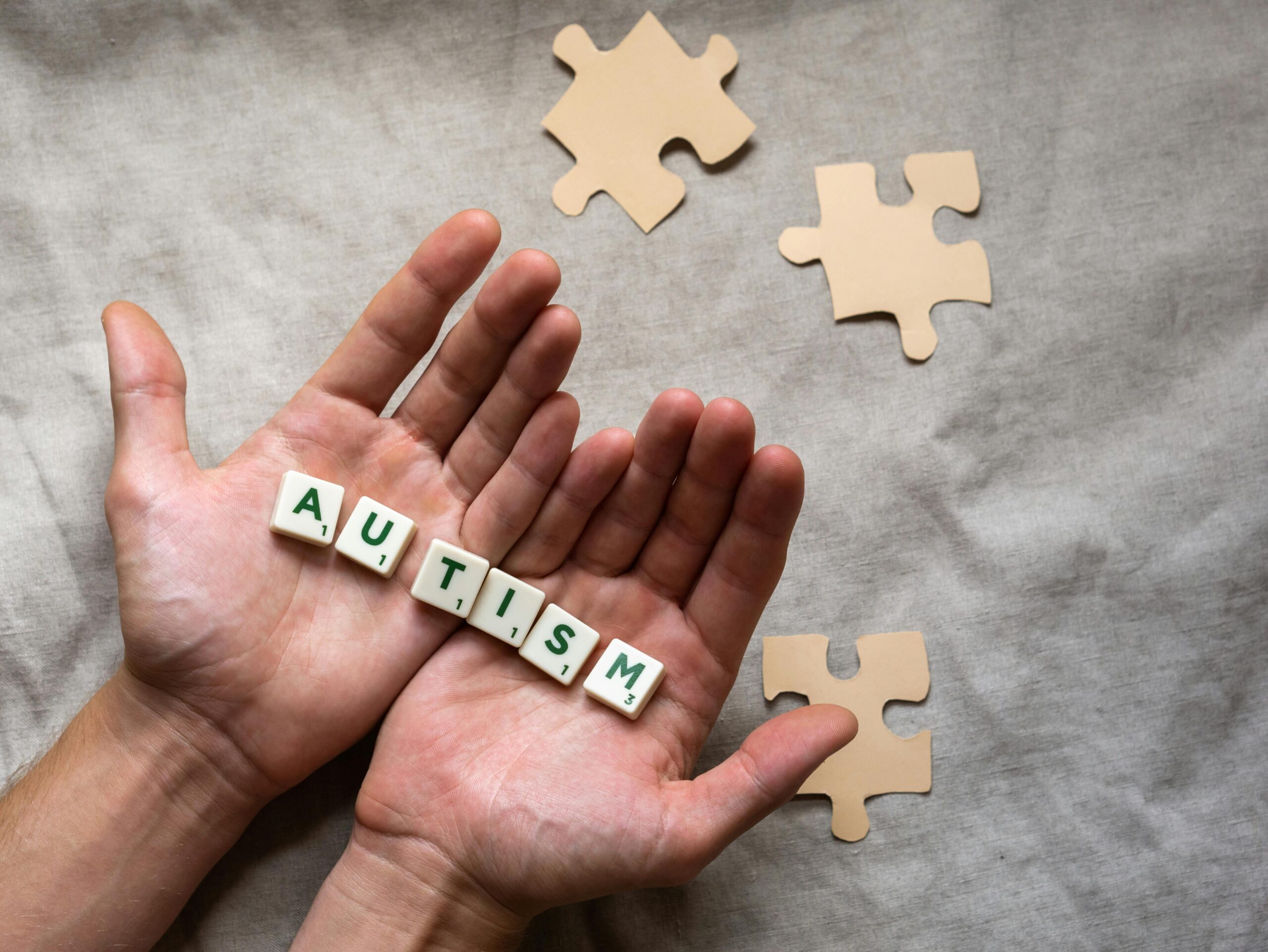With 9 years of experience in the kitchen, I’m passionate about crafting delicious recipes and sharing them with food lovers worldwide. 🍽️✨ Whether it’s a comforting homemade dish or a creative cocktail, my goal is to make cooking fun, easy, and enjoyable for everyone. Join me on this flavorful journey! 🍹🥗

Empowering Individuals with Autism: Tips for Success and Well-Being
Introduction to Empowering Individuals with Autism
Autism, or Autism Spectrum Disorder (ASD), is a developmental condition that affects communication, behavior, and social interaction. While autism presents unique challenges, it also comes with a range of strengths and abilities that, when nurtured, can lead to incredible success and well-being. Empowerment is key to unlocking the potential of individuals with autism, helping them thrive in their personal and professional lives.
Empowerment involves providing the right tools, support, and environment to help individuals with autism build confidence, independence, and resilience. This article aims to offer actionable tips for both individuals with autism and their caregivers, focusing on strategies that promote success and well-being. By understanding autism and leveraging its strengths, we can create a more inclusive and supportive world for everyone.
Whether you are a parent, educator, or someone on the autism spectrum, this guide will provide valuable insights into how to foster empowerment. From building supportive environments to prioritizing mental and physical health, these tips are designed to help individuals with autism achieve their goals and live fulfilling lives.
Understanding Autism and Its Strengths
What is Autism?
Autism is a neurodevelopmental disorder characterized by challenges in social interaction, communication, and repetitive behaviors. However, it’s important to recognize that autism is a spectrum, meaning that it affects individuals differently. Some may require significant support, while others may live independently and excel in specific areas.
Unfortunately, there are many misconceptions about autism, such as the belief that individuals with autism lack empathy or cannot form meaningful relationships. These stereotypes are not only inaccurate but also harmful. By dispelling these myths, we can better understand and appreciate the unique perspectives and abilities of individuals with autism.
Recognizing the Strengths of Individuals with Autism
Individuals with autism often possess remarkable strengths, such as exceptional attention to detail, strong problem-solving skills, and a deep focus on specific interests. These talents can be leveraged in various fields, including technology, art, and science. For example, many individuals with autism excel in careers that require precision and analytical thinking.
By recognizing and nurturing these strengths, we can help individuals with autism build confidence and achieve their goals. Empowerment begins with understanding and celebrating the unique abilities that come with autism, rather than focusing solely on the challenges.
Practical Tips for Empowering Autism Success
Building a Supportive Environment
Creating a structured and predictable routine is essential for individuals with autism. Consistency helps reduce anxiety and provides a sense of security. This can include setting regular schedules for daily activities, using visual aids like calendars, and maintaining a clutter-free, sensory-friendly space.
Sensory-friendly environments are particularly important, as many individuals with autism are sensitive to noise, light, or textures. Simple adjustments, such as using soft lighting or noise-canceling headphones, can make a significant difference in comfort and focus.
Encouraging Independence and Self-Advocacy
Teaching life skills and decision-making is crucial for fostering independence. This can include tasks like cooking, budgeting, and time management. Encouraging self-advocacy—teaching individuals to express their needs and preferences—is equally important. Role-playing scenarios and practicing communication skills can help build confidence in social situations.
By empowering individuals with autism to make their own choices and advocate for themselves, we help them develop the skills needed to navigate the world with confidence and autonomy.
Leveraging Technology and Tools
Technology can be a powerful tool for individuals with autism. Apps and devices designed for communication, organization, and learning can help bridge gaps and enhance daily life. For example, speech-generating apps can assist non-verbal individuals in expressing themselves, while organizational tools can help manage tasks and schedules.
Incorporating technology into education and daily routines can also make learning more engaging and accessible. By embracing these tools, we can empower individuals with autism to reach their full potential.
Promoting Autism Well-Being Through Self-Care
Prioritizing Mental and Emotional Health
Managing stress and anxiety is essential for the well-being of individuals with autism. Mindfulness techniques, such as deep breathing and meditation, can help reduce anxiety and improve focus. Additionally, therapy and counseling can provide valuable support for emotional health.
It’s also important to create a safe space where individuals feel comfortable expressing their emotions. Encouraging open communication and providing reassurance can help build emotional resilience.
Physical Health and Autism
Physical health plays a significant role in overall well-being. Regular exercise, such as swimming or yoga, can help improve coordination, reduce stress, and boost mood. A balanced diet is equally important, as certain foods can impact energy levels and behavior.
Establishing healthy habits, such as regular sleep schedules and hydration, can also contribute to better physical and mental health. By prioritizing physical well-being, we can support individuals with autism in leading healthier, more fulfilling lives.
Building Social Connections
Social connections are vital for emotional well-being. Encouraging meaningful relationships with family, friends, and peers can help individuals with autism feel supported and valued. Social skills training and group activities can provide opportunities to practice communication and build confidence.
Navigating social challenges can be difficult, but with patience and practice, individuals with autism can develop the skills needed to form lasting connections. Building a supportive community is key to fostering social well-being.
Inspiring Stories of Autism Success
Real-Life Examples of Empowered Individuals
There are countless stories of individuals with autism who have achieved remarkable success. From artists and musicians to scientists and entrepreneurs, these individuals demonstrate the incredible potential of autism when given the right support and opportunities.
For example, Temple Grandin, a renowned animal scientist and autism advocate, has used her unique perspective to revolutionize the livestock industry. Her story is a testament to the power of embracing individuality and leveraging strengths.
How Caregivers and Communities Can Make a Difference
Caregivers, educators, and peers play a crucial role in empowering individuals with autism. By providing encouragement, understanding, and resources, they can help create an inclusive environment where individuals with autism can thrive.
Communities can also make a difference by promoting awareness and acceptance. Inclusive programs and events can provide opportunities for individuals with autism to connect, learn, and grow. Together, we can build a world that celebrates diversity and empowers everyone to succeed.
Conclusion: Empowering Autism for a Brighter Future
Empowering individuals with autism is about recognizing their strengths, providing the right support, and fostering an inclusive environment. By implementing the tips outlined in this article, we can help individuals with autism achieve success and well-being in all aspects of life.
Remember, every individual with autism is unique, and their journey will be different. Embrace their individuality, celebrate their achievements, and continue to advocate for their rights and opportunities. Together, we can create a brighter future for individuals with autism and their families.
If you have a story or tips for empowering autism, we’d love to hear from you. Share your experiences and insights to inspire others and contribute to a more inclusive world.
Additional Resources for Autism Empowerment
- Books on autism and empowerment
- Organizations dedicated to autism support
- Tools and apps for communication and organization
- Workshops and training programs for caregivers




